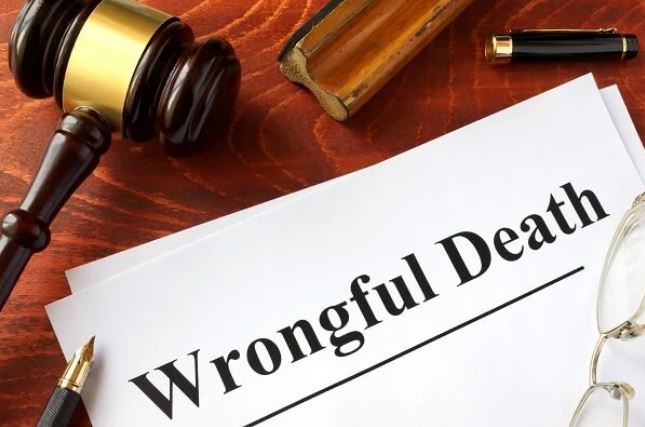 Losing a loved one is always an extremely challenging situation to deal with. It can be even more difficult if the death came during an accident and was due to the negligence or intent of another person. If someone that you care about did pass away during an accident, pursuing legal remedies through a wrongful death claim is an option to consider. If you are going to pursue a wrongful death claim, it is important to understand what constitutes wrongful death, who can file a claim, and when a claim needs to be filed in order to be processed.
Losing a loved one is always an extremely challenging situation to deal with. It can be even more difficult if the death came during an accident and was due to the negligence or intent of another person. If someone that you care about did pass away during an accident, pursuing legal remedies through a wrongful death claim is an option to consider. If you are going to pursue a wrongful death claim, it is important to understand what constitutes wrongful death, who can file a claim, and when a claim needs to be filed in order to be processed.
What Constitutes Wrongful Death?
One of the most important factors that need to be considered when filing a claim is whether the death constitutes a wrongful death claim. The plaintiff in the lawsuit will have the responsibility of proving that wrongful death took place. To do this, there are a few different factors that need to be included in the claim. To start, there needs to be evidence that the defendant in the claim had a legal duty to act in a certain way, and they failed to comply with that duty. Some examples of this can include if the death resulted in illegal reckless driving or other negligent behavior caused an accident that resulted in a death.
Once you have determined that there was negligence that resulted in the death, you will need to prove that the accident resulted in an actual injury. The complication of linking negligence to the accident can vary considerably from one situation to the next. Finally, you will need to show that wrongful death has resulted in financial suffering. This can include medical bills, future lost wages, and other expenses incurred related to the death.
Who is Able to File a Wrongful Death Claim?
When it comes to wrongful death, there is a relatively small amount of people that are able to file a claim. To file a claim, you need to be related to the deceased and meet one of several forms of criteria. To qualify to file a claim, you will need to be a surviving spouse, be a child or other dependent, by a surviving parent, or be the representative of the deceased’s estate. Generally speaking, siblings, grandparents, friend, and other acquaintances are not permitted to file wrongful death claims on the behalf of the deceased.
What is the Time Limit on Filing a Wrongful Death Claim?
If you believe that your situation qualifies for a wrongful death claim, it is important that you understand the timeline that should be followed. When it comes to a wrongful death claim, there is some evidence that needs to be gathered to support the claim and lawsuit. Due to this, it is important to not rush the process too much, and you should instead focus on gathering all necessary evidence to support your claim. However, there are statutes of limitations in Texas state that need to be understood. In most situations, you will need to file within 2 years of death.
While it is ideal to file the wrongful death claim within the two-year period, there are exceptions to this rule. The two-year period can be expanded if the plaintiff is either a minor or had a physical or mental impairment that prevented them from filing a claim within the two-year period. Further, if there was negligence involved in the death that was not previously known, the statute of limitations can be extended. Additionally, if there was fraud involved, you will have more time to file the claim.
Filing wrongful death claims in the right manner, following the proper timeline, and having all necessary evidence and information by your side is extremely important. If you are thinking of pursuing a claim due to the wrongful death of someone that you care about, having proper legal representation by your side is very important. When you are looking for legal support in the Houston, TX area, you should call the law office of Terry Bryant. The team here can offer you all the legal support you need including consultation, filing claims, preparing a case, and handling any deliberations with the other parties involved.











